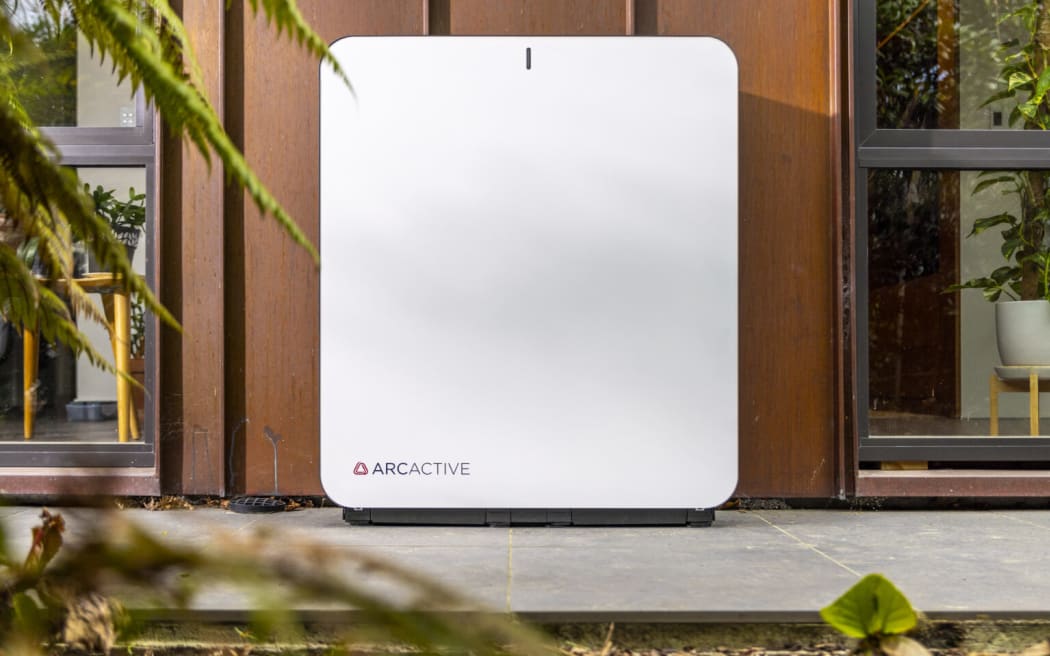For 13 years, Christchurch company ArcActive has been developing a battery system for affordable home energy storage.
Next month, the company is building its first factory and taking its lead-acid battery technology into commercial production.

Photo: ArcActive
Similar systems McKenzie tells Jesse Mulligan, but ArcActive believes theirs will be significantly cheaper.
Aiming to create a low-cost, high-performance battery, the company researched lead battery technology.
Lithium-ion battery production is getting "an awful lot of attention" and growing massively on the back of transportation, McKenzie says.
“Lead is also at a massive scale but isn't growing anywhere like lithium, and it's because of performance limitations.”
Resolving those “performance limitations” is what the company got stuck into in 2011, he says.
While lead batteries aren't new technology, McKenzie does not see that as a barrier
“Most people that we work with, they just regard batteries as a box that stores electrons. They don't really care too much about what's inside the box. It's all about the price of that box and the performance of the stuff inside the box.”
ArcActive will manufacture their batteries in Australia, he says.
“They've done such a huge job with introducing residential rooftop solar. There's so much solar now that when the sun comes up in the morning, that electricity goes onto the grid, and depending on the state, will go negative.
“If you're a generator, operating at that time of the day, you actually pay to put your electricity on the grid. So it's an extraordinary situation.”
Energy prices spike in the evening, he says, so generators can make a profit.
“That low-daytime, high-evening price structure is the opportunity for economic storage.”
In Australia, a good lithium battery system costs $17,500 to install, he says, saving homeowners about $1,500 a year in energy bills.
“So at the end of 10 years, at the end of the economic life of the battery, people still have not paid off the battery.
“Our battery system is $7,000 installed, saving the same $1,500 a year for the same 10 years. So, at the end of [the battery's] life, they've halved their electricity cost over that 10-year period.”
ArcActive batteries are designed to be replaced relatively cheaply, McKenzie says.
“You can replace the batteries and start again for another $3,000 ... so it’s highly attractive from a financial standpoint.”

